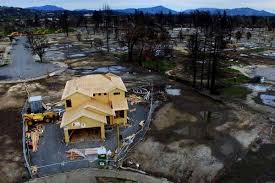
I recall 43 years ago, when I was selling my first home (my wife reminded me about it in the past) that a real estate agent broke her toe, on the bricks supporting my wood burning stove in our living room.
The insurance company did cover whatever had to be paid. But it was a wakeup call to make sure our policies going forward had the necessary coverage and/or umbrella policy to keep us in a safe zone without paying for coverages that we didn’t need.
I will not go in depth on specifics in this column about what may or may not be covered, since I am not a licensed insurance broker (but you can talk to my insurance agent for a consult, if looking for a new policy or if you have any questions about your current coverage).
Coverages can vary from policy to policy and what may or may not be covered has many variables and exceptions.
My thoughts have always been to have the proper coverages up to a certain point of what we and our insurance broker, deemed necessary and beneficial. Sometimes homeowner insurance might not been sufficient enough to cover those things that occur in todays’ crazy weather and with climate change, more frequent tornadoes and flooding, (mostly outside our immediate area), one must be cognizant of what their real needs might be; and to check and price policies once a year, just to see if there might be some savings. You might be paying more than necessary on certain insurance that you may or may not really require, under your specific circumstance and situation of homeownership.
There obviously is differences in coverage if you have a single family, multi-family, condominium, home owner association or co-op. Even if you are a tenant, you should consider spending a few hundred dollars per year to cover your personal possessions in the event of loss or theft, since your landlord’s coverage will not cover your stuff.
I am amazed at the number of people who do not have the proper coverage based on what my and other insurance brokers have conveyed to me. Many older homeowners are over insured, because some policies have had a built-in percentage increase each year, besides other increases that may occur.
When you bought your home way back when, the price of a home was much, much less and the bank required a certain amount of coverage. However, land will never burn, just your home will; so you may have excess coverage, due to the increases, that you currently do not need.
It’s the replacement cost of the structure that needs to be insured, beside liability and whatever other coverages you may need to protect you from being sued. Even your auto insurance can be excessive and you should know the amounts of coverage you have and need.
I will not advise you on how much you really should have, again, since I am not licensed to provide that information. Every situation is different and what you have in assets and what your business or job might be, may have an integral effect on the coverage you will need to carry.
However, my suggestion, as explained to me by insurance brokers, is to review your policies each and every year to make adjustments, as needed, to make sure you are more than adequately covered on your home and auto insurance policies.
I personally happen to have high deductibility on my policies, to keep my policy premiums as low as possible without sacrificing my necessary limits of liability and replacement costs. I don’t say this is for everyone; but if you have had no claims in the last three years, you might want to check your policies and see if higher deductibles would work for you, assuming you feel comfortable doing that and the savings can be excellent.
It all depends on your risk tolerance, claims history and other variables with respect to your homeowner’s policies. Auto insurance is not much different and will depend on how many moving violation tickets and damage claims you have over 1-3 years and how close together they were to have a minor or major effect your premiums.
You have to decide how much coverage is needed and necessary based on your particular situations as well as the age of your children who are of driving age living at home. Lastly, homeowners insurance is so critical to have the proper coverage and amounts; so if in the event someone sues you (as they did me years ago), you will be covered.
Especially when selling and having many buyers visit your home, is when your exposure can be the greatest!
So check your policy before putting your home on the market. Most important, this is where your insurance broker should be contacted yearly to go over all your policies, whether it’s your primary residence or any investment properties, because tenants can sue you too; that is why you should always require all your tenants to have their own policies with you as a person of interest or your corporation as an additional insured with your corporate name; so in the event they cause damage that can be proved, their insurance policy will most likely cover the damage.
However, always discuss with your insurance broker for more details and information. Better to be safe than sorry!
Philip A. Raices is the owner/Broker of Turn Key Real Estate at 3 Grace Ave Suite 180 Great Neck. He has earned designations as a graduate of the Realtor Institute and a certified international property specialist.
He can be reached by email, at:Phil@TurnKeyRealEstate.Com, or by cell: (516) 647-4289.



